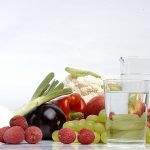Omnivores tend to be very doubtful about vegetarian labels – and ironically enough, vegetarians react in the same way when protein powders are brought up. The debate about the benefits and potential health hazards of vegetarianism is highly evocative of the protein powder polemic: in both cases, the ayes and nays are many, but few are substantiated by unbiased scientific research. Let us take the dilemma up a notch: how about being a vegetarian and taking protein powders? If you are still wondering what course of action is right for you, and what are the benefits/drawbacks of changing your diet, in what you might think is a drastic fashion, read on as we try to help you tip the scale either way.
1. The protein powder chimera: What it is and how it works
Protein powders are dietary supplements that promote muscle building, post-workout recovery, and tissue repair after periods of intense physical strain. Although protein powders are designed with athletes and bodybuilders in mind, everyone can use them in case they need an extra dose of the macronutrient. Protein powders are produced from natural sources, such as rice, milk, eggs, hemp, soy, peas, and artichokes, so they are not incompatible with a vegetarian diet. But are they really necessary for a vegetarian? You may believe you are eating right, but that may not be necessarily completely true.
2. The fine balance: Why and when extra protein could be beneficial
If you are meeting your RDA protein requirements, you do not actually need protein powders. An average RDA for protein totals 0.8 grams per pound of body weight, but the figures go up when intense or long trainings are thrown into the mix. That is when a vegan protein shake or smoothie can help: meat is one of the chief protein sources for bodybuilders and athletes, but it is off the vegetarian menu. Increasing protein intake through the vegetarian carte du jour can in some cases be tough, especially if you train hard and often: intense workouts can trigger an appetite drop, even though your body needs the fuel. Liquefied meals with soy, whey, or casein powder will in such situations both hydrate the body and provide it with easily digestible energy.
3. The biggest myths: Not a weight loss supplement, nor a meal replacement

Overweight people often use protein powders in the naïve belief that they will accelerate fat burning. This is not necessarily true: proteins are building blocks of all living cells, but protein powders cannot slim you down without workouts and dietary adjustments. Also, protein shakes and smoothies are not a wholesome meal replacement, even though some of them are enriched with vitamins and minerals. Protein drinks can be used as a light breakfast or pre- or post-workout snack, but the body still needs solid food, so do not swap regular meals for protein shakes carelessly. Also, you need to be mindful that your diet helps you not only stay fit, but stay strong and healthy – which is why you need to balance it out properly. For example, don’t forget to eat these foods for osteoporosis, which will not only help you ward of breaking a bone, but will also boost your energy levels in a significant way. Also, they can be combined into all sorts of tasty meals.
4. To whey or not to whey: Best vegetarian-friendly protein powders
Though most protein powders are vegetarian-compatible, the choice will largely depend on your individual needs and consumption timing.
• Whey powder digests relatively fast and helps increase muscle strength and size and repair muscle damage, so it is usually used as a post-workout snack.
• Casein powder is extracted from milk and takes more time to digest than whey protein, but it also releases nutrients longer. It is mostly used as a pre-workout supplement.
• Soy powder is the favorite vegetarian protein powder which packs complete protein, and it can also help reduce risk of cancer and cardiovascular diseases.
• Pea powder is fat-, cholesterol-, gluten-, and lactose-free, which makes it ideal for people with sensitive digestive systems. Unfortunately, it lacks cystine, an essential amino acid which needs to be extracted from other foods.
• Brown rice powder has similar effects as whey, but just like pea powder, it lacks one essential amino acid (lysine) so it does not provide complete protein and should be paired with lystine-rich foods.
In conclusion, vegetarians may not necessarily need protein powders – but will be no worse for adding them to their diet. It comes down to personal choice: you can be a vegetarian, a protein powder user, a gym aficionado, a dubstep lover, and/or an IT expert, for as long as you are happy – and healthy. Eating right is just the first step to becoming the ultimate version of yourself, and while it may sound like just another boring saying – you really are what you eat.








